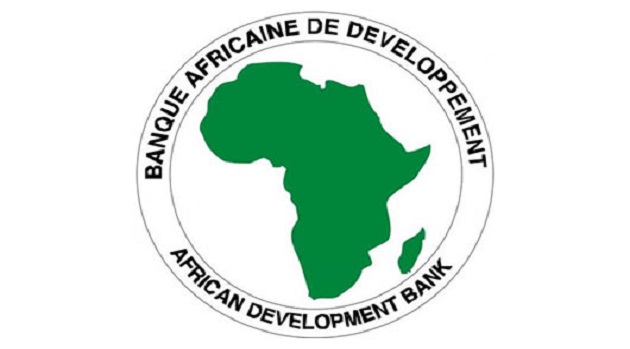General News
FG in ‘Rat-Race’ to Beat Obama’s Ultimatum on ISPS
Federal government has intensified action to overcome the security huddles of the US Government, especially the US demand that government beef up security in the Nigerian ports, or have ships coming out of the country’s ports barred from entering the American ports.
Specifically, US Government stressed the need for Nigeria to adopt and adhere strictly to the International Ships and Ports-Facility Security (ISPS) Code.
The code is an enhanced security level which the United Nations, and its specialized organ, the International Maritime Organization (IMO) prescribed, after the September 11 frightening attacks on the US twin towers.
Maritime industry operators opined that Obama administration took the tough decision having witnessed the soaring influence of the dreaded Boko Haram group in Nigeria, Government’s seeming determination to treat their chaos with the kid’s glove; and a perceived unwillingness on the part of the Nigerian government to accept international support to nip the crisis in the bud.
According to MaritimeFirst Newspaper, the operators also posited that US government might have been proactively reacting, based on intelligence, motivating the recent placement of million dollar-bounty of the heads of Boko Haram leaders; as well as the notion that the group, may use the occasion of the coming September 11 anniversary, to export further violent attacks against the US, using ships emanating from care-free ports.
Assuring the industry stakeholders in a swift reaction, the Government, through Leke Oyewole, senior special assistant to the President on maritime matters, said that Government was leaving no stones un-turned, to ensure that the country beats the ultimatum from the US authorities.
Speaking on the theme: ‘Reviving ISPS Code Implementation in Nigeria’, Oyewole also told his audience that the mandate to implement ISPS Code has now been designated on the Nigerian Maritime Administration and Safety Agency (NIMASA) after the Presidential Implementation Committee on Maritime Safety and Security (PICOMSS) was dissolved by Federal Government few months’ backs.
“This is an important mission that must be accomplished, because if we fail to comply, US will ban ships that visit Nigerian ports from calling their ports. This will lead to a situation where, few ships will be calling Nigerian ports, and as a result, leads to high cost of freight”, Oyewole said
He stressed that the Nigerian Ports Authority (NPA) had also been mandated, to fully automate port access control, so as to reduce the human interface in the port, which will in turn reduce corruption in the port.
He maintained that NIMASA would soon commence the installation of black flags on Nigerian ports that were deemed not to be ISPS Code compliant for not meeting the international security standard; even as the agency, would also install Nigerian flags and the International Maritime Organisation (IMO) flags in ports that are ISPS Code compliant., stressing that Nigeria now has 45 days to the termination of the 90 days ultimatum given to the Nigerian government to boost security at her maritime domain, by the United Nations Coast Guard,
In his response, Patrick Akpobolokemi, NIMASA’s director-general, said that the agency would vigorously pursue ISPS Code implementation by raising the security standards of all port facilities in Nigeria, as well as on ships that bears Nigerian flags.
“The gains of a nationwide compliance with the ISPS Code are immense and serve as an anaesthetic for the short-term discomfort that our implementation agenda might cause in the interim. But the risk of non-compliance with ISPS Code is frightening given the threats our nation faces from the growing menace of global terrorism and other maritime crime”, the NIMASA boss added,
He assured that his management would work with the relevant stakeholders, including the NPA, NNPC and the Nigerian Navy to ensure that Nigerian waterways and port facilities are made safer for shipping business to thrive.
The US Coast Guard, through its embassy in Nigeria read the riot act to Nigeria, giving it a 90-day ultimatum to adhere to the letters of the ISPS Code or face sanction.
It would be recalled that the U.S embassy received an audit report from the officials of the United States Coast Guards who were in Nigeria about a month ago, to inspect security of the Nigerian ports.
Based on their findings, the embassy conveyed a diplomatic note to the Foreign Affairs Ministry in Nigeria, which was forwarded to the Nigerian Ports Authority (NPA) and other relevant agencies.
General News
More 14m Farmers to Benefit from AfDB-backed Initiative

Additional 14 million farmers in 37 low-income and vulnerable countries served by the African Development Fund, the Bank Group’s concessional financing window, are set to benefit from a technology initiative targeted at scaling up climate-resilient food production across the continent.

This comes after the African Development Bank Group (AfDB) and the International Institute of Tropical Agriculture (IITA) signed a $16.61 million grant agreement to launch the third phase of the Technologies for African Agricultural Transformation Programme (TAAT-III)
TAAT-III, funded by the African Development Fund, is expected to consolidate earlier gains benefiting 14 million more farmers while introducing a more sustainable, private sector-driven delivery approach.
AfDB said the initiative aims to reinforce seed and technology distribution systems, deepen partnerships with governments and agribusinesses, and expand the digital tools, including its technology e-catalogues and real-time monitoring platforms, to speed up deployment of high‑impact solutions.
Simeon Ehui, director general of IITA, commented: “TAAT-III allows us to deepen the delivery of science‑based solutions that improve farmers’ yields and livelihoods. Working with the Bank and our partners, we are scaling technologies that make Africa’s food systems more resilient and competitive.”
Since its launch in 2018, TAAT has become one of Africa’s most effective and transformative platforms for agricultural innovation, reaching nearly 25 million farmers and boosting productivity across major staples.
The initiative has expanded climate-resilient agricultural practices across over 35 million hectares.
In a statement, the AfDB said working closely with the Consultative Group of International Agricultural Research Centres and national and regional partners, TAAT has increased crop yields up to 69% and generated more than $4 billion in additional agricultural value.
Countries including Sudan, Ethiopia, Zambia, Zimbabwe, and Nigeria have recorded notable gains in staple crop productivity and resilience to climate shocks.
Nigeria has been a key beneficiary of TAAT initiatives. Under its Wheat Compact, farmers adopting improved heat-tolerant varieties more than doubled yields from 1.7 tons per hectare to 3.5 tons per hectare.
Programme supported seed system assessments also helped inform national reforms to expand access to certified, climate-resilient seeds.
Speaking at the signing ceremony, Abdul Kamara, director general of the Bank Group’s Nigeria Country Department, said the new phase will focus on scaling innovation more rapidly
Kamara said: “TAAT-III underscores the Bank’s commitment to ensuring that proven, climate-resilient agricultural technologies reach farmers faster and at scale. This phase strengthens the systems that deliver innovation, helping countries boost productivity, enhance resilience, and align agricultural transformation efforts with the Bank’s four new areas of emphasis, dubbed the Four Cardinal Points.”
General News
Conoil Bonanza Winners Emerge

Conoil Plc is spreading joy this Valentine season as the first group of winners in its Valentine Bonanza promotion have been announced and rewarded. Launched on February 14, the campaign continues to delight customers at participating retail outlets.

The initial raffle draw, conducted on February 21, saw fortunate customers receive ₦10,000 worth of free petrol each. The draw was carried out publicly, with media representatives present to ensure full transparency. With the promotion still ongoing, more customers have the opportunity to join in and potentially be among the next winners.
A Conoil Management spokesperson explained that the initiative is a way to show appreciation to loyal customers for their ongoing support. “Our customers have responded impressively to the bonanza, with strong participation recorded across our stations,” the spokesperson said.
The second and final phase of the promotion is now in motion. Customers who purchase at least 10 litres of petrol at any participating Conoil station remain eligible to win in the grand finale raffle.
The grand finale is set for February 28 at 12 noon. Motorists in Lagos and Ogun states are encouraged to visit Conoil outlets to collect their tickets and take part in the exciting conclusion of this Valentine celebration.
General News
PalmPay Couples Show How Love Is Funded Digitally

PalmPay users took to the #LoveWithPalmPay campaign to show how experiences are powered through seamless banking.

It’s the month of love and social media has been filled with couples showing affection with gifts. As digital payments become embedded in everyday life, the way relationships are planned, funded, and experienced is evolving.
Recent insights from SBM Intelligence 2025 ‘Love in the Air’ report show that despite economic pressures, most Nigerians still set aside dedicated budgets for Valentine’s Day, with the largest percentage planning to spend between N51,000 and N100,000, while less than 5% are willing to spend above N500,000.
This growing intentionality highlights the need for platforms that help people manage their money more effectively, offering features like free transfers and tools that make it easier to send, track, and preserve funds while still showing up for meaningful moments.
Through the #LoveWithPalmPay campaign, PalmPay set out to show how the platform is enabling users to plan, pay, and celebrate meaningful moments with greater ease.
During the Valentine’s season, PalmPay invited couples across Nigeria to share their stories through the #LoveWithPalmPay campaign, celebrating how digital banking supports their individual expressions of love.
The campaign saw strong participation, with many PalmPay couples submitting entries that showcased how they use the app to plan surprises, pay for outings, and stay connected through everyday transactions.
From these entries, four couples were selected, each showcasing how PalmPay has enabled fast and reliable transactions in key moments.
One video from @simply.omotoshan, one of the selected couples, captures the role of seamless payments in making their spontaneous moments possible.
She said in her entry video: “Our cutest money moment with PalmPay was when we planned our Valentine’s picnic and realized we had forgotten half of the things we needed; literally, half of everything. We rushed to the mall to get cakes, food, decorations, and all the essentials. When it was time to pay, we used PalmPay.
“The transaction was smooth, fast, and stress-free. In no time, we were done setting up our Valentine-themed picnic with everything perfectly ready. Honestly, all our experiences with PalmPay have been easy and satisfying, but this one is definitely our cutest money moment. Thank you, PalmPay.”
A testimonial from the fourth selected couple, Mohammed and his wife, reflects his excitement: “Hello PalmPay, thank you so much for selecting us as one of the winners of the #LoveWithPalmPay campaign. We truly appreciate this. My wife and I are very grateful. Thank you, PalmPay, for the love and support. We’re so happy and thankful for the N100,000 reward. We love you, PalmPay, and long live PalmPay. Thank you so much.”
Beyond the feel-good stories, the campaign reflects a broader shift: fintech is no longer just about transactions, it’s about enabling experiences. Reliable payments, fast transactions, and accessible financial tools reduce the friction that can disrupt important moments, allowing users to focus on connection rather than logistics.
From paying for dinner to managing other expenses, PalmPay continues to demonstrate how digital financial services support modern relationships, proving that in today’s economy, love is not only felt, it’s funded digitally.

 General News2 days ago
General News2 days agoKPMG Strengthens Africa Leadership to Support Long‑term Growth Across the Continent

 E-Business2 days ago
E-Business2 days agoesentry 2025 Report Shows Healthcare, Financial Services and Telecoms as Staging Grounds for Increased Cyberattacks in Africa

 News1 day ago
News1 day agoNITDA Equips Federal Character Commission with Data Tools to Drive Public Sector Reform

 E-Financial2 days ago
E-Financial2 days agoFlutterwave Rises from Lagos Startup to Africa’s Fintech Powerhouse

 News2 days ago
News2 days agoNigeria, EU Ink Research, Innovation Deal Worth €100Bn

 E-Financial1 day ago
E-Financial1 day agoHistory is Watching: Tinubu’s Moment to Rescue Nigeria’s Stolen Future

 Telecom1 day ago
Telecom1 day agoTelecom Giant MTN Injects N1.0 Trillion CAPEX into Network Expansion

 General News2 days ago
General News2 days agoPalmPay Couples Show How Love Is Funded Digitally














